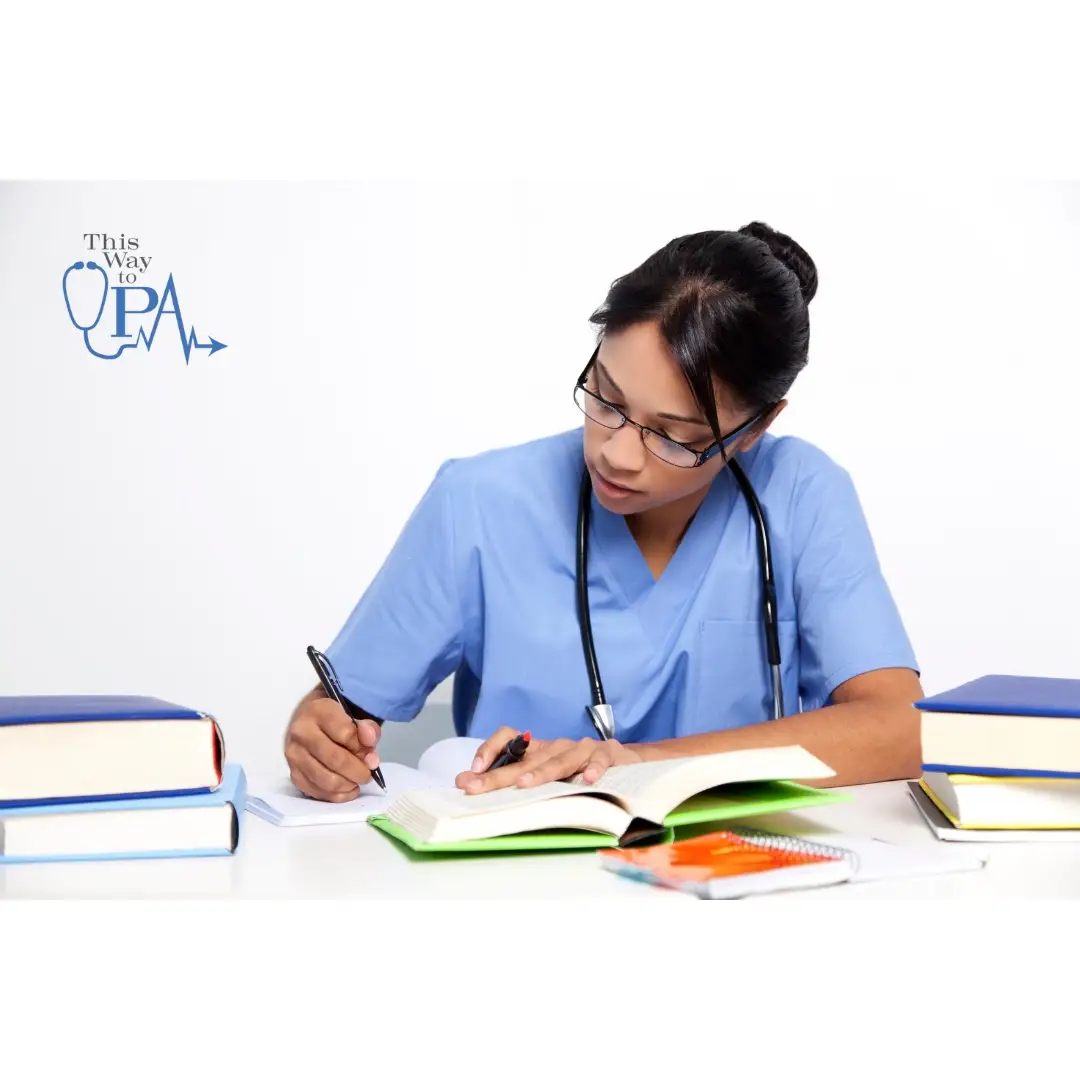

When I started PA school many people said, “This is going to be the hardest thing you have ever done.” I honestly laughed at this comment. Reflecting back, I would both agree and disagree. I would describe PA school similar to sprinting a marathon or trying to drink out of a firehose. PA school is all about learning, absorbing, and applying as much knowledge as possible through critical thinking as well as various formulas. This learning will come in the form of lectures, hands-on activities, reading, videos, exams, hands-on patient care, patient vignettes, and a variety of other forms.
Some of these may speak to your learning style and others will not. So how do you memorize, absorb, and learn as much information as possible in order to be the best PA you can? Here are ideas to get you thinking.
To begin with, I think the absolutely most important study skill you can cultivate in PA school is resiliency. You will face challenges ranging from being tired to not doing as well on an exam as you wanted to being stretched outside of your comfort zone. However, your mindset and if you see these moments as opportunities for growth and learning versus failure will determine your PA journey.
There is no one way to do this. However, I would encourage you to solidify early on your motivation, inspiration, and reasons for being a PA so you can remind yourself often. For me, I found quotes about persistence and growth, made time for exercise, and spoke with family and friends. I also made sure to find laughter in the smallest of areas with friends and always made sleep a priority. How this looks may change for you throughout school, but it is important to consider what tools you need in order to keep your eyes on the prize.
Beyond resiliency, here are some concrete ideas to help you study smarter.
The Mighty Dry Erase Board
The Dry Erase Board was my most used tool! I am a visual learner and would draw out various aspects of the human body including things like the brachial plexus, flow of the heart, and various arterial and venous pathways. I would do this over and over again trying to ingrain this information in my memory. The best part is that I could wipe the slate clean and do it again! This helped to create muscle memory and allowed me to better work through test questions and recall information.
While studying, I would write down the information as I was learning or reading about it. This method brought another technique for my brain to learn through. For instance, when learning about murmurs I would focus on one valve and murmur. Let’s say aortic stenosis. I would write down what was physically happening to cause the murmur, what it would sound like, where and when I would hear the murmur best, and some symptoms of the disease. I would do this a few times until I could answer these questions without having to look up the answers. Then I would move onto another valve and repeat the process. This allowed me to actively learn instead of just reading over slides or books over and over again and hoping something would stick.
Study Buddy
Early on I found a fantastic study buddy who is now one of my closest friends! Some of my classmates used to enjoy studying in silence with others. For me, I liked to study alone and then about 1-2 days before an exam, I would get together with a friend, eat snacks (very commonly this was frozen chicken nuggets. A great snack on a budget!) and ask each other questions. This was not only fun social time, but this form of learning required us to think of questions, used recall to answer the questions, and forced us to explain and teach a topic if the other person could not answer it. When neither of us understood the subject completely, we would work together to research and better explain what we understood to one another. We were surprised by the number of times that the questions we asked one another came up nearly exactly on our exams.
We quickly learned we both performed significantly better and received higher grades on the exams that we prepared together on. I never used this technique in college or while completing any schooling before PA school. However, it is a tool I encourage everyone to try!
Recording Lectures
I will admit, PowerPoints and being lectured to in a classroom is not the ideal learning style for me. However, I learned to use it to my advantage. I unfortunately can get distracted and zone out during long lectures regardless of how interested I am in a subject. So, early on I started recording lectures on my phone. Then when I would go on a run, walk, or any other exercise, I would listen to the lecture. While I didn’t catch every single word again, I found it very helpful to listen to an explanation a second or third time, stop and rewind a lecture, and answer questions in my head while listening to it. I found that lectures made more sense to me when I was able to spend time learning the material on my own and then revisit whatever the lecturer had discussed. I also appreciated that the entire lecture was on my phone and portable wherever I found it to be helpful.
Small Group Teaching
PA school is a journey that you complete through hard work and teamwork. This means jumping in to explain topics to classmates when they are struggling and to accept help when you need it. Sometimes we may not understand a topic as a lecturer explains it, but a classmate may be able to explain it in a way that makes more sense to you. Also, if you can teach a concept, this will solidify your understanding while helping someone else. As PAs we are trained to work on a team, allow your time in school to solidify these skills and use them to your advantage.
Videos, Q Banks, Articles
The internet seems endless at times! However, find a handful of great tools to augment your learning. There are a lot of smart people who have researched and put together medical information specific for PAs as well as more generally for the medical world. I personally found I would jump between watching videos, reading articles, and completing online test questions. For me personally, I found focusing on question banks to be of the greatest benefit during the clinical year when we were taking End of Rotation exams and preparing for PANCE as compared to didactic year. I am not endorsing any of these specific resources, but I will share that I used to watch videos on Osmosis and YouTube. I also found UpToDate, DynaMed, and Medscape to have articles that helped me to better understand various diseases. Additionally, there are many question banks available and I found different ones more helpful during my didactic year as compared to clinical year.
You will be faced with a lot of information and will need to figure out how to stay on track and organized. I would encourage you to not be attached to any of your old learning styles and experiment a bit to see what works best for you. For me, PA school required me to quickly adapt my study skills and become flexible depending on the subject at hand. However, I think as a PA our ability to be flexible and adaptable is one of our greatest strengths.
Best of luck on your PA journey. Do not hesitate to reach out if you need a little extra help!
© 2025 All Rights Reserved.